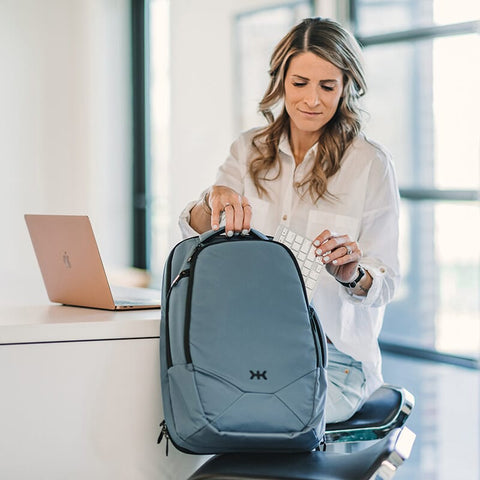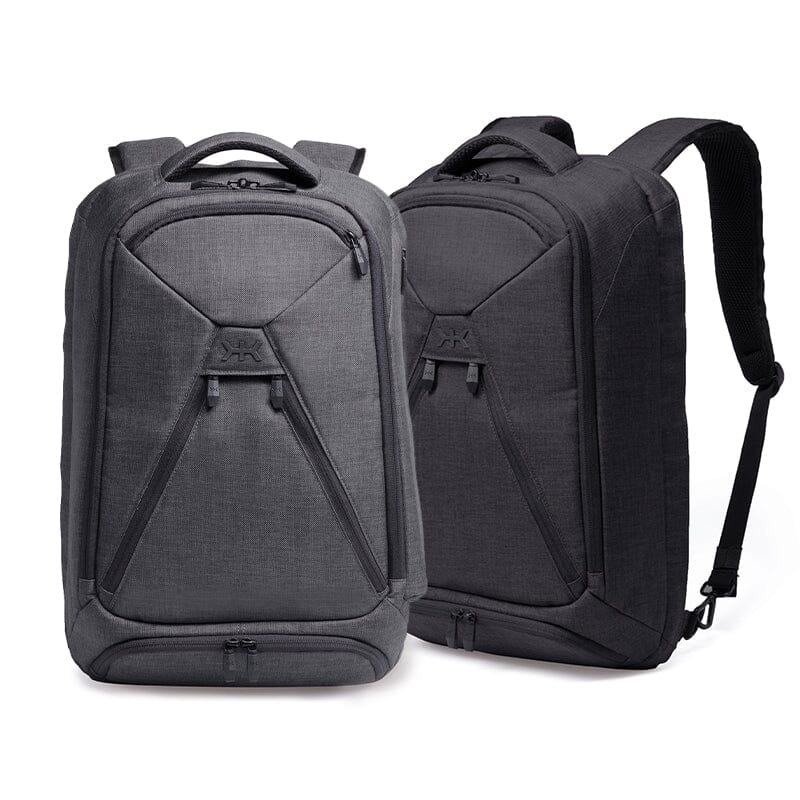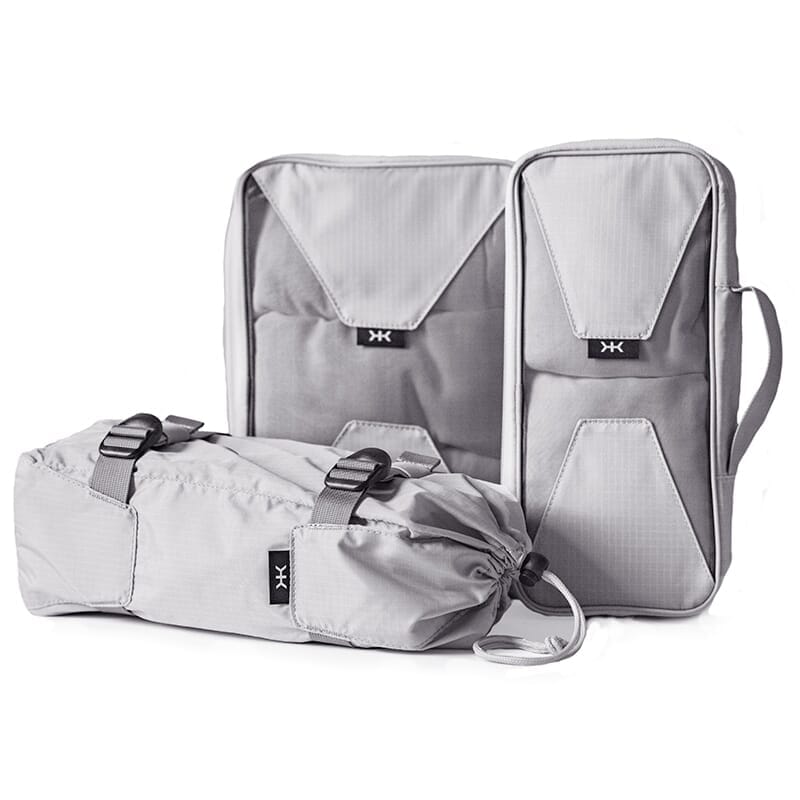Transitioning from college to career? Explore essential young professional advice for thriving in the corporate world. From professional etiquette to work-life balance, discover how Knack makes this significant shift seamless and stylish.
Reading Time: 5 minutes |
Subscribers: 23,525 |
If you’re transitioning from campus to cubicle, this leap into the next chapter promises personal growth as you adapt to a new mindset, responsibilities, and daily routines. And while you’re probably familiar with the idea of the corporate world - and perhaps you’ve interned or shadowed inside of an office - you’ll inevitably face a learning curve as you’re immersed in the routines and unspoken rules of corporate culture.

We’re sharing a few essential tips to help navigate this big step and smooth the transition to the workforce. Whether it's finding the right work accessories, like a professional laptop backpack, or understanding corporate communication, these insights will support and streamline your journey.
- Embrace Professional Etiquette
- Learn Time Management
- Create a Work-Life Balance
- The Best Backpack for Young Professionals
Embrace Professional Etiquette
Although all office cultures differ in how formal they are, nearly all offices maintain some level of polished etiquette that influences everything from communication to dress code. And because this etiquette often exists for a good reason - it sets the tone for courteous interactions among employees - following this etiquette will help you not only make a good impression but to bond and form lasting relationships with your colleagues.
Clear Communication is Key
Imagine ordering your favorite drink at Starbucks - you tell them the exact size, number of espresso shots and pumps of vanilla syrup that you want, and the barista delivers it flawlessly. The same principle applies to workplace communication - it should be to the point.
Here are five pillars of clear communication that should underlie all of your professional interactions, from emails to Zoom calls to weekly standups, no matter what your office culture is:
Conciseness - Keep your messages simple and direct, with no unnecessary fluff. Getting to the point saves time and ensures that your colleagues grasp the essential information.
Transparency - Don’t withhold information. Giving all relevant information keeps everyone on the same page.
Active listening - Seek to understand the root of what your colleague is discussing, and ask questions accordingly.
Feedback loops - Be proactive in asking for feedback, especially at the beginning. And give thoughtful and constructive feedback to help your colleagues improve.
There’s another important side to effective communication - vulnerability. Acknowledging when you need help doesn't make you seem incompetent; rather, it demonstrates your commitment to growth and improvement. Remember, you were hired because your colleagues believe in your abilities, and asking for help will help you grow more quickly.

Organization plays a vital role in clear communication, especially in a bustling corporate environment. That's where tools like a professional backpack can subtly support your professional journey. With compartments designed to keep your work essentials neatly organized, an expandable laptop Knack Pack helps ensure that you have everything you need at your fingertips. Whether it's a pen for jotting down quick notes during a meeting or your laptop for an impromptu presentation, having what you need, when you need it, contributes to confident and effective communication.
>>MORE: What Makes the Best Work Backpack
Be Part of the Culture
Beyond communication, there are many ways that a culture is fostered in an organization. Ideally, you should ask about office culture before you accept a position, during an interview process or when networking with current employees.
But if you’ve already accepted, don’t walk in blind, wearing a suit when the uniform is laid-back flannel fashion. Embrace the unique atmosphere, values, and practices that define your new workplace. Here are a few questions to ask:
What’s the dress code? Align your wardrobe with the company’s expectations.
What are the traditions? Every organization has its traditions and rituals, whether its how meetings are conducted, celebrating milestones, or Friday afternoon team gatherings.
What are the hierarchies? Understand the chain of command and hierarchies within the organization. Show respect to senior colleagues and supervisors, but also be approachable to team members. But don't be afraid to spread your wings and connect with colleagues across all levels.
Embracing culture doesn’t mean losing yourself in the process. Stay true to who you are, because diversity builds strength in an organization.

Need a backpack for work?
Knack Packs have a professional aesthetic, and can accommodate your work gear with dedicated laptop pockets and organizational pockets to keep everything in place.
>>MORE: Why Choose A Professional Backpack For The Office
Learn Time Management
You’ve probably learned how to meet deadlines at this point in your life, but in the professional realm, you’ll likely face projects with abstract timelines and task-switching requests that fly at you from bosses, coworkers, and clients.
Here are some tips for spending your time effectively in the workplace:
Set priorities
Each day, choose the most important tasks and give them your undivided attention. It’s easy to get caught up in daily fires, but keeping your long-term goals in mind will help you stay focused on the most important items.
Do deep work
Deep work is a term coined by productivity guru Cal Newport. It means immersing yourself in intense focus on a single task and shutting out all distractions, which are increasingly rare in our digital world. By doing the opposite of multitasking, you’ll enjoy improved productivity, creativity, and problem solving. It’s not easy to master, but even an hour of deep work every day will help you get the important stuff done.
Establish communication protocols
You don’t have to field emails all day long. Set specific times in the morning and at the end of the day to manage your inbox, and delegate certain communication to platforms like Slack to avoid the pitfalls of task switching. And of course, block off focus time in your calendar to avoid anyone dropping a last-minute meeting on you.
>>MORE: Top 5 Productivity and Time Management Tips
Stay organized - digitally and physically
On your very first day, set up folder systems on your desktop and your email, and back up the most important files in cloud storage. Then, set up a notetaking system, whether it’s Evernote, Notion, or Obsidian. Find the right protocols that work for you, and refine as you go. This will save you hours of headache down the line, and every day.

It’s equally as important to keep your physical stuff organized - especially your precious work gear. It’s never fun to show up to the office without your charger, and have to borrow that of a coworker. And protect your company property - like your work laptop - as you commute by keeping it in a laptop backpack, like the Knack Pack, which has a padded, false-bottom laptop pocket.
Create a Work-Life Balance
According to Workforce.com, more than half of US workers experience burnout. Burnout is a state of mental and emotional exhaustion caused most often by chronic stress and overwhelming demands in the workplace. This, of course, is neither good for the individual, or the organization - which is why so many employers are starting to realize the value of a balanced workforce.
But even if your employer hosts yoga retreats and installs meditation rooms, it’s on your shoulders to build a healthy work-life balance. Which for many is easier said than done, because the hustle and drama of the professional world holds a special allure. But remember, even once you’re given a professional title, you’re not defined solely by your job; you are a multifaceted individual with interests that extend far beyond the office walls.
So right off the bat, make an effort to set boundaries. Put work away at 5pm, or whenever you sign off. Don’t check Slack or email on the weekends, and reserve time for activities that bring you joy and fulfillment. Communicate these boundaries, if necessary, to your colleagues.
Hot take: Work to live, don’t live to work.
>>MORE: How to Avoid Work Burnout
The Best Backpack for Young Professionals.
Knack Packs have a work-life balance system built in. With multiple compartments, you can ‘pack away’ your work stuff when the day is over, by reserving a pocket for your work tech and another for the stuff you need for your after-work adventure. And as a multipurpose bag, your Knack Pack helps you seamlessly transition between roles; the ones where you’re a busy professional, a fitness enthusiast, or a wanderlust weekend warrior.
How will you use your expandable backpack? We love to hear how you plan to use - or have used - your Knack Pack for work, travel, and everyday life. So share your stories and adventures with us on social media: tag @KnackBags and use the #KnackBags when you take your Knack on journeys.






